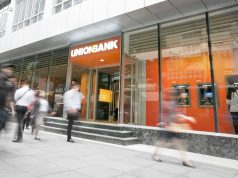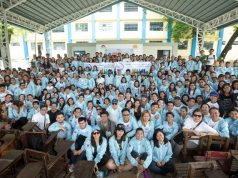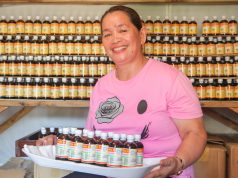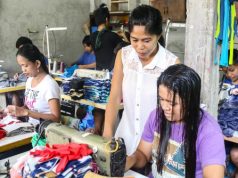From farmers, to sari-sari store owners, to street vendors, World Vision engaged individuals and families from November last year, introducing the concepts of local value chain and teaching business planning to help them increase their income. Dubbed “Aiding Vulnerable Families through Value Chain Development,” the program was funded by Citi Foundation and aimed to provide vulnerable families with capacity building trainings, access to savings and credit facilities, and technical assistance to improve the profitability and sustainability of their income generating activities.
The program was initially offered in Baseco, Manila, and since then, over 300 beneficiaries from five other communities, namely, Isabela, Malabon, Palawan, Cavite, and Batangas, have undergone training and workshops on Local Value Chain Development (LVCD), market and financial literacy, product development, and business planning. The outcome of all these: at least 17 business plans and several thriving businesses as of August 2017.
Citi Philippines Director for Public Affairs and Corporate Citizenship Aneth Lim led the culminating activity to celebrate the program’s success last August 1 at Brentwood Suites in Quezon City. The event, attended by participants from all six Area Programs, was highlighted by the trainees’ progress and testimonies. It also showcased their wide range of local products like bags, woven hats, notebooks made from water-lily, food produce such as lumpia and malunggay, and different kinds of dishwashing liquids.

Honorata Casabuena, chairperson of the farmers’ group in Batangas, was among those who gave positive testimonials and thanks to partners World Vision and Citi Foundation. “We used to just plant and plant without thinking to whom are we going to sell our produce. The project makes us understand that proper business planning is essential so as not to waste our products.” Dialogues and meetings with business entities, service providers, and local government agencies were facilitated to explore possible collaboration and market opportunities in connection with the focused value chains and livelihood projects in the communities. Among the projects were bag and water-lily products making, dishwashing liquid production, vegetable and ginger production, rice trading, hog raising, and processed food and fresh meat vending.
In her inspirational speech, Lim thanked Honorata and all the community partners in the room who showed their strong commitment to improving their lives and that of their families. “It’s heartwarming to see the fruits of all your hard work showcased today. When we were designing this program and discussing our partnership with World Vision, we both agreed that there is no shortage of community partners who would want to improve their micro businesses or cooperatives. The challenge was to craft a responsive program that will help you overcome market barriers and at the same time establish market linkages that are right for each of you. I pray that the successes we are seeing now will continue, and more importantly that you will share your newfound knowledge to the rest of your communities so they too can reap the rewards.”
To help the beneficiaries handle their money wisely, Community Managed Savings and Credit Association (CoMSCA) groups were also formed. CoMSCA is a savings and lending system that allows its members to save and multiply their finances by regularly buying shares and borrowing money. Thirteen CoMSCA groups with 300 members were organized through the project, which had a total savings of nearly P1 million as of July 2017. In addition, 90 beneficiaries completed the CoMSCA Trainer’s Training last January and February 2017 and have since become certified agents, allowing them to hold orientation sessions and form new groups outside of their respective barangays.
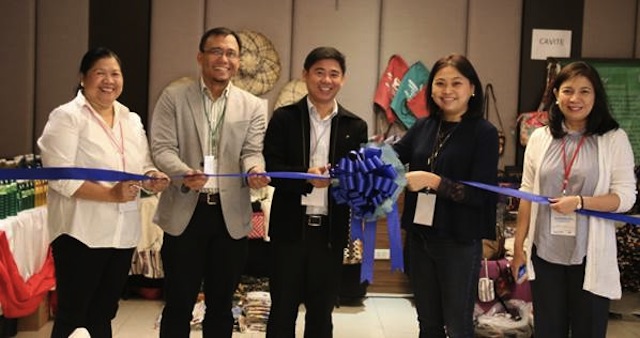
World Vision National Director Rommel Fuerte expressed his satisfaction over the project and the accomplishments of the beneficiaries. “I feel proud and happy to hear all the good testimonies from families who became part of this project. World Vision is merely an avenue for all of us to learn and inspire one another. We are grateful to Citi Foundation and this project that aspires to empower parents and provide them alternative livelihood so that each family can provide the basic needs of their children. I hope this project was able to encourage and empower you to do so.”





